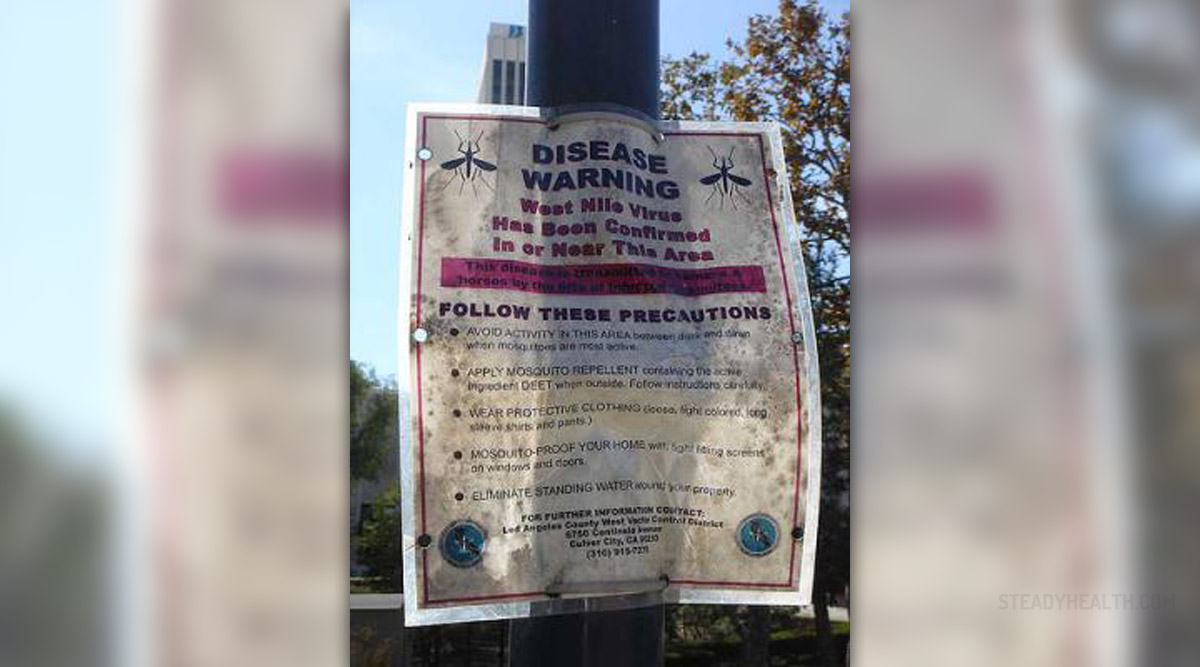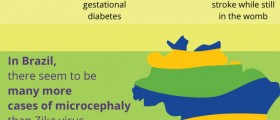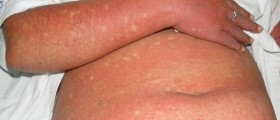
West Nile virus is an infectious disease. It mainly infects birds, but mosquitoes are the ones who spread the virus. By biting an infected bird, it becomes a carrier. The virus is stored in the mosquito's salivary glands. When two weeks have passed, it can transfer it to humans or other animals.
However, the virus cannot be transported from one human being to another. The infections reach their peak during the summer months.
It normally affects the central nervous system, and a person may not experience any symptoms. However, in some cases, when left untreated, it can be fatal.
There is no vaccine for the protection from West Nile virus. Severe cases are treated with supportive care in a hospital. This means helping the body fight illness on its own. However, scientists are currently working on a vaccine.
The best way for protection is to be safe from mosquitoes, by using various repellents, wearing protective clothes, etc.
Symptoms
As stated, there are usually no symptoms at all, but when they appear, one should consult a doctor. The doctor runs blood tests to confirm the existence of the virus if he has reason to suspect that the patient might be suffering from this disease. Firstly, he asks a number a question to determine whether the patient has been to places where there have been known cases of his virus. People who live in or travel to regions where the virus has been found are at risk of being infected.
Sometimes, some patients (usually people with chronic health conditions) may develop West Nile Fever, which can be quite dangerous. The symptoms include headache, fever, neck stiffness, seizures, tremors, sensitivity to light, and muscle weakness.
Complications
If left untreated, West Nile Virus may lead to encephalitis (an inflammation of the brain) or meningitis (an inflammation of the linings that cover the brain).
It can also cause the brain or spinal cord to swell and obstruct the blood flow to the brain. This may lead to paralysis, a coma, or even death. The neurological effects may be continuous in some people.
Although it has been researched for a long time now, scientist conducting the research still do not exactly know why some people recover quickly, and others have permanent health problems.
This means that patients who, although being cured from the virus, may face difficulties in performing daily tasks, paralysis, depression, recurrent headaches, etc.

















Your thoughts on this
Loading...